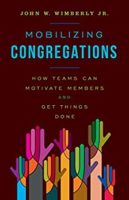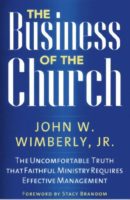In the 20th century, many churches followed a standard staffing model. As a congregation grew in membership and mission, it added a director of Christian education, associate pastors, and a business manager, usually in that order. Today, congregations are questioning the need for all of those positions, at least as they were performed in the past.
Questions about the director of Christian education position relate to the demise of Sunday School as it evolved in the 20th century. As the massive “boomer” generation arrived in the world, Sunday Schools boomed as well. Denominations like the Presbyterian Church had entire schools dedicated to training Christian educators for local congregations. However, toward the end of the 20th century, Sunday Schools struggled to maintain enrollments.
Experiences for Children and Youth
There are many reasons behind the decline of Sunday School—the primary one may well be Sunday morning youth soccer leagues. To make a long story short, the church has lost the competition with those leagues. Many children and youth prefer to attend Sunday soccer matches, rather than a class at church.
Another problem for Sunday schools has been their inability to change as the way people learn has changed. Increasingly, education takes place virtually. The pandemic forced congregations to understand this and invest in online learning. One large church in the Kansas City suburbs reports that, as a result of moving to learning online during the pandemic, the number of children and youth engaged in spiritual formation has increased dramatically.
As congregations move to hybrid learning experiences for children and youth, will they still need a 20th-century style Christian educator? Will they need someone who spends a lot of time recruiting and supporting teachers for Sunday morning? Probably not. What they need is someone who can create or find online content that will engage children and youth. They also will need someone who can think creatively about a spiritual formation experience on Sunday morning for those children who come to church with their parents, as well as weekday experiences for all children. They will also need someone to support parents as they raise their children. This staffer might be an educator. It might be a pastor. Or it might be someone else.
Church Staff Positions
In the 20th century, associate pastors were added as congregations grew in membership and mission. Usually, they had a specific area of ministry to perform. They might do youth ministry, mission work, or small groups, in addition to helping with pastoral care and worship.
Today, congregations sense the need for staff in the area of communications. Churches are in the communication business. They communicate God’s love, God’s Word. A congregation needs someone skilled in branding, eblasts, graphic design, social media, and website construction and maintenance. Lacking those skills, a congregation will struggle to survive, let alone grow, in the 21st century. When recruiting such a staff person, a congregation is competing against the secular world. The price tag can be steep.
When evaluating the continuing need for youth ministry, mission work, and pastoral care, many congregations are letting go of the idea that these functions need to be done by a full-time, ordained associate pastor. Increasingly, they are seeking part-time people to do this type of ministry. For example, several congregations with which I have worked are considering hiring a community organizer instead of an ordained clergyperson to lead mission work.
Costs and Benefits
In the mainline denominations, the associate pastor position comes with a hefty expense for the denomination’s health and retirement plan. For this reason it may be tempting to hire part-time people to save money. But as part-time people are employed, congregations should develop generous benefits for them, because 1) it is the morally responsible thing to do, and 2) benefits will attract high-quality employees.
One model is for the benefits to be paid in proportion to the percentage of time a person works. If the person is half-time, the congregation will pay 50% of a full-time benefit package and the employee can choose to pay the rest. If the employee it three-quarters time, the congregation pays three-quarters of a full-time benefit package.
The business manager position is also evolving in the 21st century. Increasingly, I see congregations of all sizes outsource their accounting work. This began in the 20th century with the advent of payroll services, and has accelerated as some congregations outsource everything except counting the money offering plate and mailed-in checks. Many congregations also outsource cleaning and maintenance services. With both finances and building management outsourced, who needs a business manager?
Managing the Staff
There is an important caution on this trend. First, a congregation needs strong teams or committees to manage the outsourced companies. Congregations often report that a cleaning service started strong but then the quality dropped as time passed. Who manages them? Similarly, accounting firms can be slow to respond at times. If a congregation has lay people with strong financial and building management skills, outsourcing will work. If not, having part- or full-time in-house staff do the work is probably the preferable choice.
The biggest loss when outsourcing is the “human touch.” Many of us remember the church janitor or sexton fondly. Such long-term staffers do a lot of pastoral care with members and staff alike. In the church I served for thirty years, the janitor—who was there for fifty years—was definitely more popular than me!
Staff members miss the day when they could walk down the hall and get an immediate answer to financial questions—having to wait can be irritating. Retaining the “human touch” is, unfortunately, a growing problem in many congregations, and outsourcing can add to it.
To recruit and retain excellent staff a congregation needs to think creatively about which tasks to assign to staff and which to volunteers. Leaders can succeed by taking full advantage of their members’ knowledge of secular and church employment markets, carefully constructing job descriptions and fair compensation plans for each staff position, hiring the right person, and establishing clear systems of accountability and supervision. None of this is easy, but staff redesign and leadership are critical for churches than intend to thrive in the 21st century.
John Wimberly is an experienced pastor and consultant. As a consultant, he has worked with congregations and judicatories on strategic planning, staff designs for the 21st century, and congregational growth as well as financial and administrative management. He has MBA, MDiv, and PhD (theology) degrees. His books focus on effective management and leadership. John believes congregations can have a bright future!




